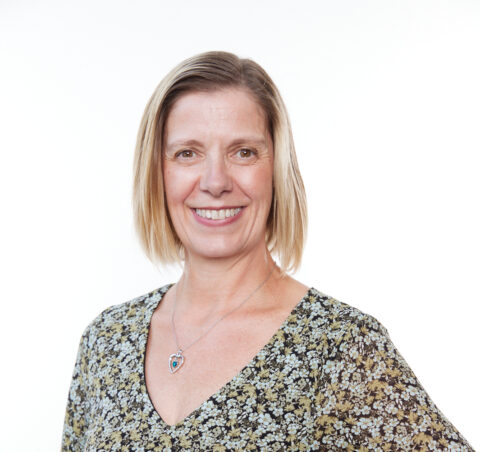Powering up progress: Utility spokespeople share their thoughts on diversity and inclusion.
Over the next two decades, we will witness a significant change in the energy landscape as renewable power and green gases begin to shape the future of energy. To operate efficiently, the roles within the energy industry and who holds them need to become more inclusive.
As the UK continues to decarbonise power and heat by phasing out fossil fuels and shaping the approach to zero emissions over the next 26 years, how can the energy and utilities sector develop by encouraging more diversification?
Xoserve gathered a group of industry stakeholders to find out.
Confidence through encouraged authenticity
Womens Utilities Network (WUN), in collaboration with The Marketing Pod, recently conducted a study into unconscious bias towards women in the sector. The report found that 46% of the women who responded often hesitate to give their opinions or share ideas at work, even though they know that what they have to say is valuable.
As part of Xoserve’s podcast, Decarb Discussions, women from the energy and utility industry were asked to reflect on their careers and offer advice to those considering a career in the sector. “I think that it is very common amongst all of us, but especially women, to focus on what we don’t know,” says Sophie Dooley, Consultant at Engage Consulting.
Della Newton, Global Energy Management and Sales at ENGIE, added, “I used to try to be more serious, which sounds ridiculous looking back. Now, I can bring my whole self to work, and that enthusiasm to meetings, and it actually helps.”
When asked what advice they would give to their younger selves, our stakeholders seemed to agree: don’t dim your light to fit in. Another theme that emerged is the importance of not being overwhelmed by the complexity of the industry and not being afraid to ask questions.
By creating a more inclusive and diverse workplace, firms within the industry can empower employees to showcase their skills and personalities, alongside insecurities or vulnerabilities. This will allow recruits to bring different perspectives and skill sets, empowering them to become real assets for the industry.
Recognising and combating unconscious bias
A compelling point made by Melissa Giordano, Deputy Director of Retail Systems and Processes at Ofgem during the podcast is that “particles and electrons don’t care about who we are as people – male, female non-binary. It’s important to keep hold of that.” Yet across the roles most likely to influence Great Britain’s journey towards net zero, such as decision-making and the STEM industry, the numbers are significantly weighted towards men.
Within Science, Research, Engineering And Technology professions, there are 600,000 women compared to 2,000,000 men. Amongst Chief Executives and Senior Officials, only 32% are women. Xoserve, like many organisations within the energy sector, has a male CEO.
Speaking about bringing diversity to the company, Xoserve’s CEO, Steve Brittain, said: “We must keep impressing upon everyone that we welcome people from all backgrounds to come and join us.”
Another point Steve made was about the flexibility of working, “Xoserve acknowledges that every person is unique and has different needs. To provide a better working environment, we offer flexible and hybrid working options. We also aim to create an inclusive work culture without bias. In line with this, our recruitment process now includes the use of anonymous CVs as standard practice to ensure that unconscious bias does not affect candidates’ chances of joining us.”
Hidden opportunities within the sector
The energy and utilities industry is a vast and multifaceted sector, offering unexpected opportunities and a chance “to be involved in something that is both a great career but also a really worthwhile endeavour” said Jo Layton, Data Quality Manager at npower.
She also believes that “working in the energy industry is about making the world a better place for our kids and literally keeping the lights on for people.”
In fact, new data from Indeed shows that people now prioritise jobs that positively impact society and the environment more than when they started their careers. When discussing opportunities for professionals joining the industry now, our stakeholders stressed the importance of having the confidence to grab new opportunities – regardless of one’s gender, title or other factors.
“Say yes to every opportunity because you never know where it’s going to lead you. Unless you try you’re never going to know” says Stella Matthews, Head of Business Operations and Portfolio Management at N-Gen Energy Solutions.
In an ideal world
A tradition of the Decarb Discussions podcast is to ask guests what they would do with a magic wand to improve inclusion and diversity in the industry.
“I would wipe any biases, eliminate all the tags that we attach to people,” said Ayena Gupta, Head of DCC Oversight & Regulatory Review.
Victoria Mustard, Former Decarbonisation Strategy Lead at Xoserve, added that the problem is even bigger with unconscious bias, “If I could wave my magic wand I would enable everyone to understand what their unconscious bias is, make it a conscious bias, and then you can do something about it.”
But diversity and inclusion is not just a gender problem – race, class and other identity markers also need to be considered. Moreover, ED&I initiatives shouldn’t be limited to the workplace but should extend to policy considerations that affect the wider public.
The importance of nurturing a more diverse group of people from different backgrounds and experiences is becoming more widely understood. With reaching net zero being arguably the toughest challenge of this century, diversity could hold the key to making representative change – and is essential to a just transition.
 Guest Blog Sharon Ilsley, Head of People at Xoserve.
Guest Blog Sharon Ilsley, Head of People at Xoserve.



